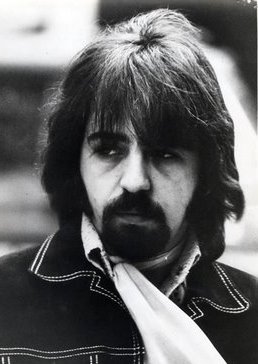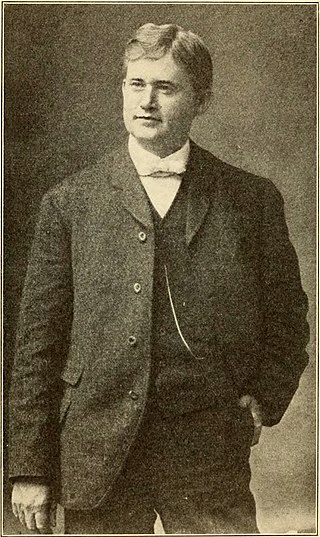
Ingram Cecil Connor III, known professionally as Gram Parsons, was an American singer, songwriter, guitarist, and pianist. He recorded as a solo artist and with the International Submarine Band, the Byrds, and the Flying Burrito Brothers, popularizing what he called "Cosmic American Music", a hybrid of country, rhythm and blues, soul, folk, and rock.

The Flying Burrito Brothers are an American country rock band best known for their influential 1969 debut album, The Gilded Palace of Sin. Although the group is perhaps best known for its connection to band founders Gram Parsons and Chris Hillman, the group underwent many personnel changes and has existed in various incarnations. Now officially known as The Burrito Brothers the band continues to perform and record new albums.
"O Come, All Ye Faithful", also known as "Adeste Fideles", is a Christmas carol that has been attributed to various authors, including John Francis Wade (1711–1786), John Reading (1645–1692), King John IV of Portugal (1604–1656), and anonymous Cistercian monks. The earliest printed version is in a book published by Wade. A manuscript by Wade, dating to 1751, is held by Stonyhurst College in Lancashire.

Clarence White was an American bluegrass and country guitarist and singer. He is best known as a member of the bluegrass ensemble the Kentucky Colonels and the rock band the Byrds, as well as for being a pioneer of the musical genre of country rock during the late 1960s. White also worked extensively as a session musician, appearing on recordings by the Everly Brothers, Joe Cocker, Ricky Nelson, Pat Boone, the Monkees, Randy Newman, Gene Clark, Linda Ronstadt, Arlo Guthrie, and Jackson Browne among others.
The Stamps-Baxter Music Company was an influential publishing company in the shape note Southern gospel music field. The company issued several paperback publications each year with cheap binding and printed on cheap paper. Thus, the older books are now in delicate condition. These songbooks were used in church singing events, called "conventions," as well as at other church events, although they did not take the place of regular hymnals. Among the country music and bluegrass "standards" that were first published by Stamps-Baxter are "Rank Strangers to Me", "Just a Little Talk with Jesus", "Precious Memories", "Farther Along", "If We Never Meet Again", "Victory in Jesus", and "I Won't Have to Cross Jordan Alone".

Farther Along is the eleventh album by the American rock band the Byrds and was released in November 1971 on Columbia Records. For the most part, the album was recorded and produced by the Byrds themselves in London, England, over the course of five work-intensive days in July 1971. It was quickly released as a reaction to the commercial failure of the Byrds' previous album, Byrdmaniax, and as an attempt to stem the criticism that album was receiving in the music press.
"When the Saints Go Marching In", often referred to as simply "The Saints", is a traditional black spiritual. It originated as a Christian hymn, but is often played by jazz bands. One of the most famous jazz recordings of "The Saints" was made on May 13, 1938, by Louis Armstrong and his orchestra.
"Precious Memories" is a traditional gospel song credited to J. B. F. Wright in 1925. Wright was born in Tennessee on February 21, 1877. The hymn was first recorded by The Turkey Mountain Singers in 1928.
"I'll Fly Away" is a hymn written in 1929 by Albert E. Brumley and published in 1932 by the Hartford Music company in a collection titled Wonderful Message. Brumley's writing was influenced by the 1924 secular ballad, "The Prisoner's Song".
Gene Victor Parsons is an American drummer, banjo player, guitarist, singer-songwriter, and engineer, best known for his work with the Byrds from 1968 to 1972. Parsons has also released solo albums and played in bands including Nashville West, the Flying Burrito Brothers, and Parsons Green. Along with guitarist Clarence White, he is credited with inventing the B-Bender —a device which allows a guitarist to emulate the sound of a pedal steel guitar. The device is often referred to as the Parsons/White B-Bender, a trademarked name.
"The Wayfaring Stranger", Roud 3339, is a well-known American folk and gospel song likely originating in the early 19th century about a plaintive soul on the journey through life. As with most folk songs, many variations of the lyrics exist and many versions of this song have been published over time by popular singers, often being linked to times of hardship and notable experiences in the singers' lives, such as the case with Burl Ives' autobiography.
"Hickory Wind" is a song written by country rock artist Gram Parsons and former International Submarine Band member Bob Buchanan. The song was written on a train ride the pair took from Florida to Los Angeles in early 1968, and first appeared on The Byrds' Sweetheart of the Rodeo album. Despite Buchanan's input, "Hickory Wind" is generally considered to be Parsons' signature song. Parsons' decision to play "Hickory Wind" instead of the planned Merle Haggard cover "Life in Prison" during The Byrds' performance at the Grand Ole Opry on March 15, 1968 "pissed off the country music establishment" and stunned Opry regulars to such an extent that the song is now considered essential to Parsons' legend.
"What a Friend We Have in Jesus" is a Christian hymn originally written by preacher Joseph M. Scriven as a poem in 1855 to comfort his mother, who was living in Ireland while he was in Canada. Scriven originally published the poem anonymously, and only received full credit for it in the 1880s. The tune to the hymn was composed by Charles Crozat Converse in 1868.

"It's Gonna Work Out Fine" is a song written by Rose Marie McCoy and Joe Seneca. It was originally released by Ike & Tina Turner in 1961 as a single from their album Dynamite! (1962). The record is noted for being their first Grammy nominated song and their second million-selling single after "A Fool In Love".

Charles Davis Tillman —also known as Charlie D. Tillman, Charles Tillman, Charlie Tillman, and C. D. Tillman—was a popularizer of the gospel song. He had a knack for adopting material from eclectic sources and flowing it into the mix now known as southern gospel, becoming one of the formative influences on that genre.
The gospel song Palms of Victory, also called "Deliverance Will Come", and "The Way-worn Traveler", appears to have been written in 1836 by John B. Matthias, a Methodist Episcopal minister in New York State. This attribution is not well documented, and Matthias had no known history of songwriting, but there is no other author to whom it can be attributed.

"I Know (You Don't Love Me No More)" is an R&B song written and recorded by American singer Barbara George, released as her debut single in 1961. It became her signature song and her only major hit in United States, reaching No.1 on the Billboard R&B singles chart and No.3 in the Hot 100. It was later covered by various artists, inducing Fats Domino, Cher, Ike & Tina Turner, and Bonnie Raitt. A Spanish version by Marisela topped Billboard's Latin chart in 1988. The Shirelles borrowed the melody of "I Know" for their 1963 cover of "Everybody Loves A Lover".

The Gospel According to Ike & Tina is a studio album by Ike & Tina Turner released on United Artists Records in 1974.

Get It – Get It is an album by Ike & Tina Turner released on Cenco Records circa 1966. The album contains two previously released singles. "Strange," written by Billy Preston was released from Ike Turner's own label Sonja Records in 1964, and a live version of "I Can't Believe What You Say " was released from Kent Records in 1964. The latter single reached No. 95 on the Billboard Hot 100. The title track "Get It – Get It" was released as a single from Cenco in 1967.

The albums discography of American country singer-songwriter Bill Anderson contains 45 studio albums, three live albums, 13 compilation albums, four extended plays and one box set. He first signed with Decca Records in 1958 and started releasing singles which became major hits. However, Anderson's first album was not released until 1962. Entitled Bill Anderson Sings Country Heart Songs, the package was a compilation release containing his major hits up to that point. His debut studio release, Still, followed upon the success of its title track in 1963. The release peaked at number 10 on the Billboard Top Country Albums chart and number 36 on the Billboard 200, his only album to chart the latter survey. Over the next decade, Anderson released several albums per year, many of which reached the top ten on the Billboard country albums chart. His second studio release, Bill Anderson Sings (1964), reached number seven on the chart for example. In 1966, his fifth studio album, I Love You Drops, reached number one the country albums list. In 1967, Anderson recorded his first album of gospel music called I Can Do Nothing Alone, which reached number 23 on the country albums survey. His eighth studio record, For Loving You (1968), was a collaborative project with Jan Howard. It reached number six on the country albums chart.











